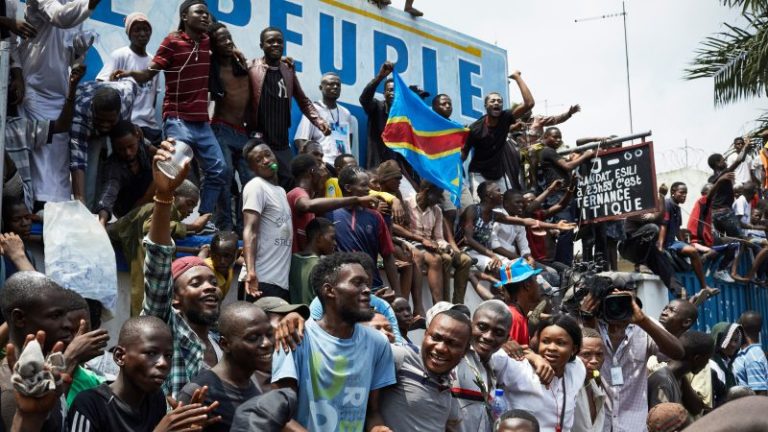The government of the Democratic Republic of Congo is set to ban an opposition protest scheduled for Wednesday, citing the absence of legal grounds and accusing it of undermining the ongoing electoral process. This comes as early results from last week’s tumultuous national election indicate President Felix Tshisekedi is leading the race.
Five opposition presidential candidates had jointly organised the demonstration in the capital, Kinshasa, to protest alleged irregularities in the election. However, the government, on Tuesday, declared its intention to ban the event, emphasising the ongoing compilation of results by the Commission Électorale Nationale Indépendante (CENI) election commission.

Vice Prime Minister Peter Kazadi stated in a press conference, “No government in the world can accept this, so we will not let it happen.”
The organisers of the protest have not yet responded to the ban, raising concerns about the potential escalation of tensions surrounding the December 20 presidential and legislative vote, crucial for determining whether Tshisekedi secures a second term.
Election-related disputes have historically fueled unrest in the Congo, posing a risk to the stability of Africa’s second-largest country, known for its significant cobalt and copper production but grappling with widespread poverty and insecurity, particularly in the eastern region.
The election itself was marked by a violent campaign and logistical challenges, including delayed deliveries of election materials, equipment malfunctions, and disorganised voting registers. The CENI’s decision to extend voting at stations that failed to open on election day was rejected by protest organisers, who also demand a complete rerun of the vote.
Some independent observers raised concerns about the extension compromising the election’s credibility. While the CENI began releasing results, showing Tshisekedi leading among 18 challengers with 80% of approximately 2.8 million votes counted, details such as the total voter turnout from the 44 million registered voters remain undisclosed.
Presidential candidate Moise Katumbi has echoed the concerns of the protest organisers and called for the resignation of the head of the CENI. The situation remains tense as the country awaits further developments in the electoral process.


